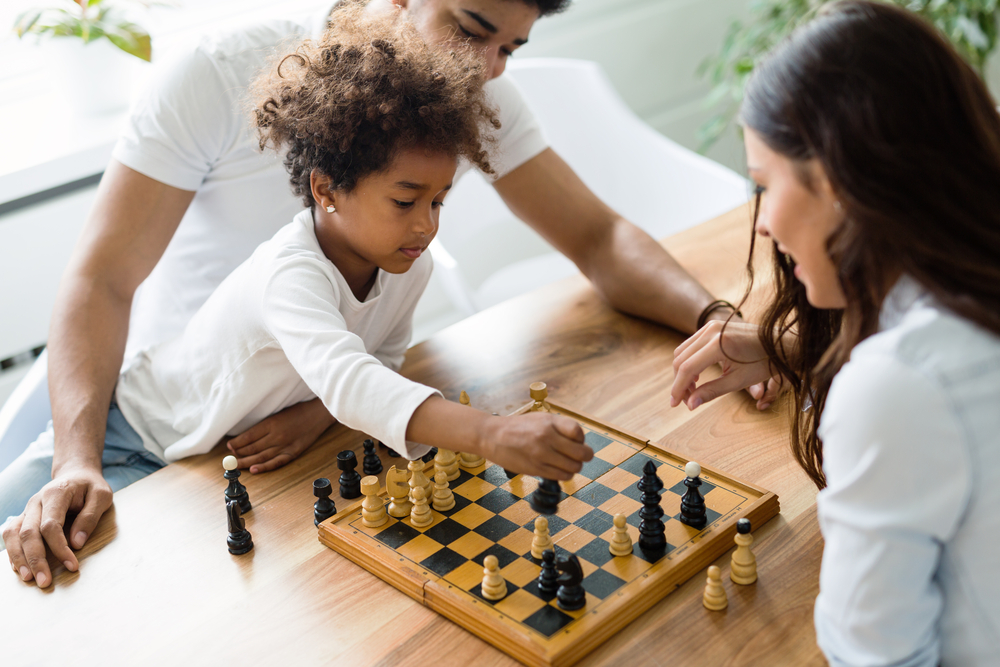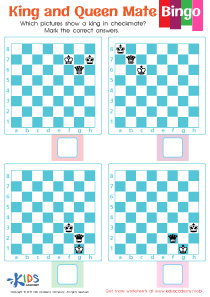Cognitive Development Normal Chess Worksheets for Ages 5-6
4 filtered results
-
From - To
Our Cognitive Development Normal Chess Worksheets for Ages 5-6 are designed to enhance young minds through the intriguing game of chess. Each worksheet combines fun activities with strategic thinking to develop critical skills such as problem-solving, memory, and concentration. Tailored for early learners, these engaging exercises help children understand chess basics and ignite a lifelong love for the game. Brightly illustrated and easy to follow, our chess worksheets are perfect for both classroom use and additional practice at home, setting the stage for future cognitive growth and academic success. Download now to start your child’s intellectual journey!
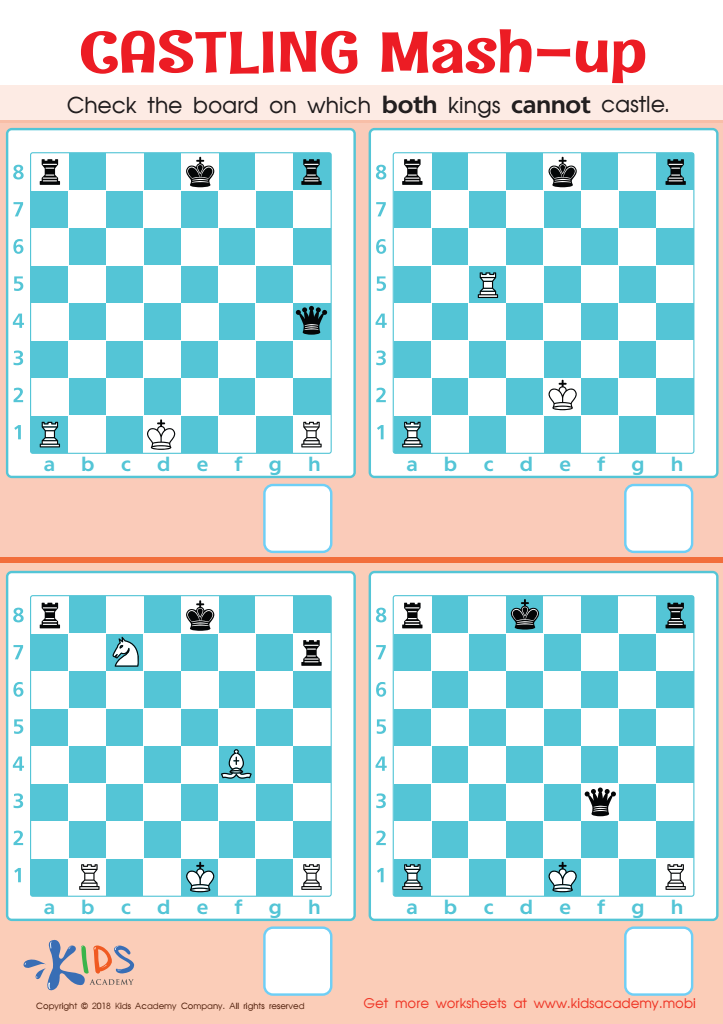

Castling Mash–up Worksheet
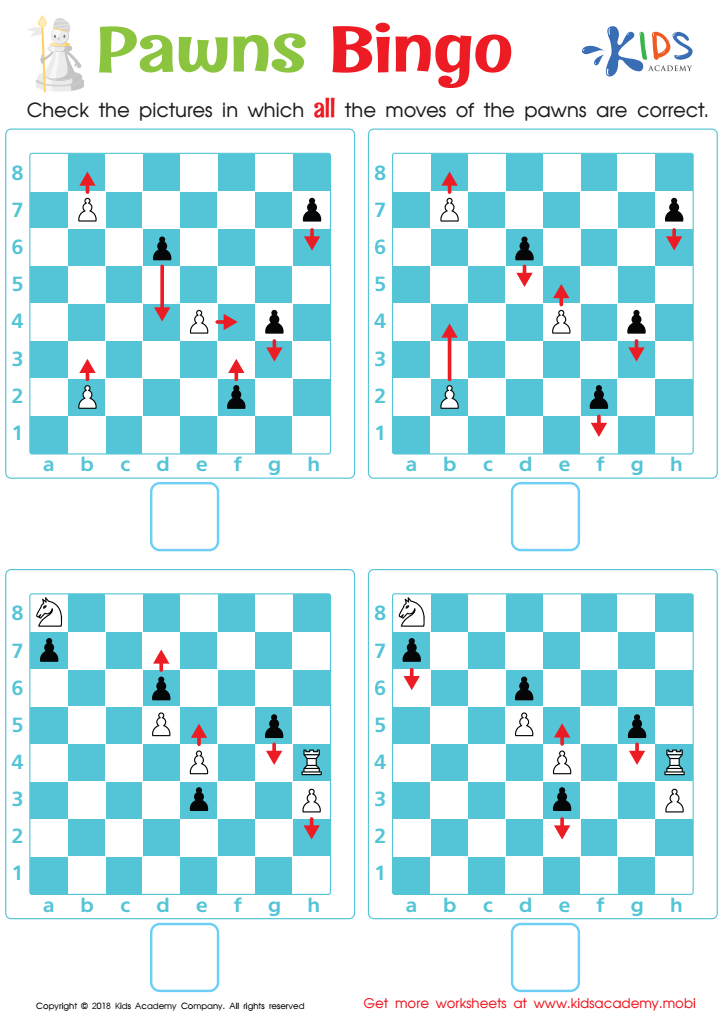

Pawns Bingo Worksheet
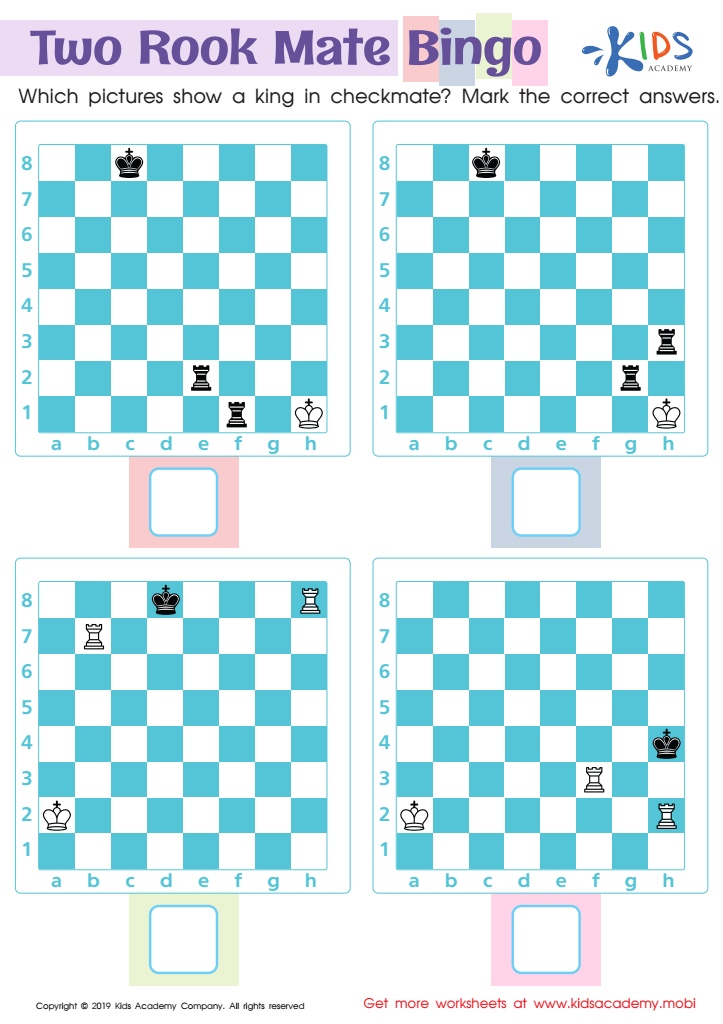

Two Rook Bingo Worksheet
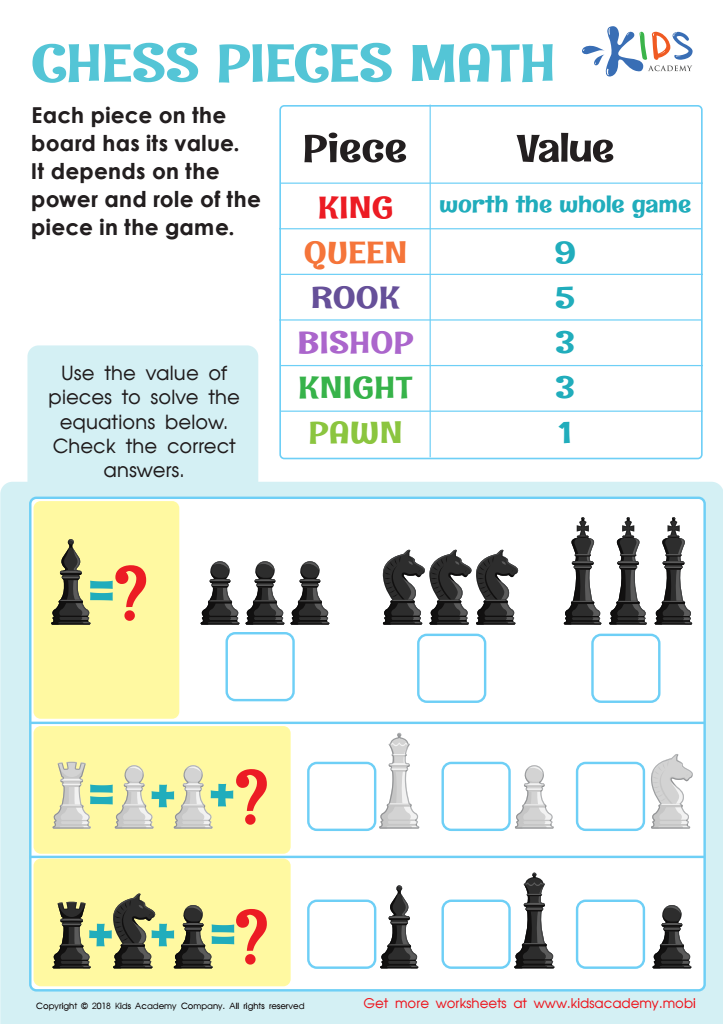

Chess Pieces Math Worksheet
Parents and teachers should be attentive to cognitive development through activities such as learning chess, especially for children aged 5-6. Normal chess, as a structured game, provides a plethora of cognitive benefits crucial for early developmental stages. At this age, children's brains are highly plastic and can absorb new information rapidly, making this the ideal time to introduce activities that challenge their thinking.
Playing chess enhances memory by requiring children to remember the rules of the game and the various moves each piece can make. It also boosts problem-solving skills and strategic thinking as children learn to anticipate their opponent's moves and plan several steps ahead. Moreover, chess promotes abstract thinking by helping children recognize patterns, which is fundamental in subjects like mathematics and language.
Additionally, learning and playing chess can significantly improve attention span and concentration, skills that are beneficial throughout schooling and daily life. It also teaches patience and determination, as winning often requires long-term planning and perseverance.
On the social front, chess provides an opportunity for young children to learn about sportsmanship, sharing, and respecting an opponent — valuable lessons for interpersonal development. Thus, encouraging children aged 5-6 to play chess helps lay a robust cognitive and social foundation that supports their overall growth and future learning endeavors.
 Assign to My Students
Assign to My Students





